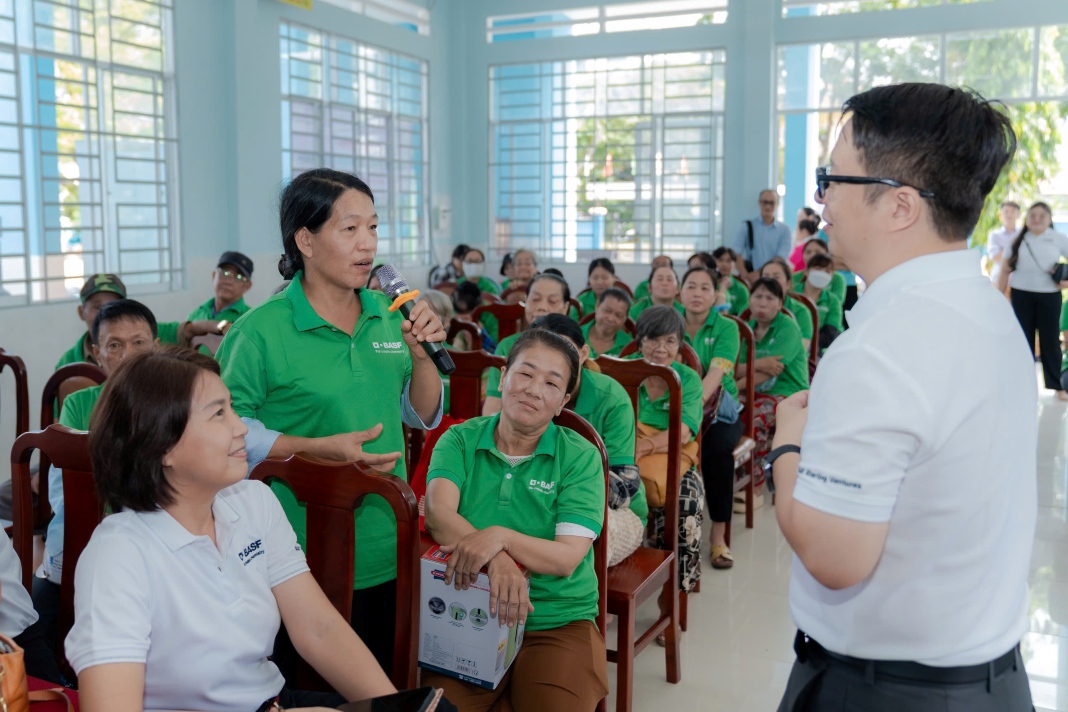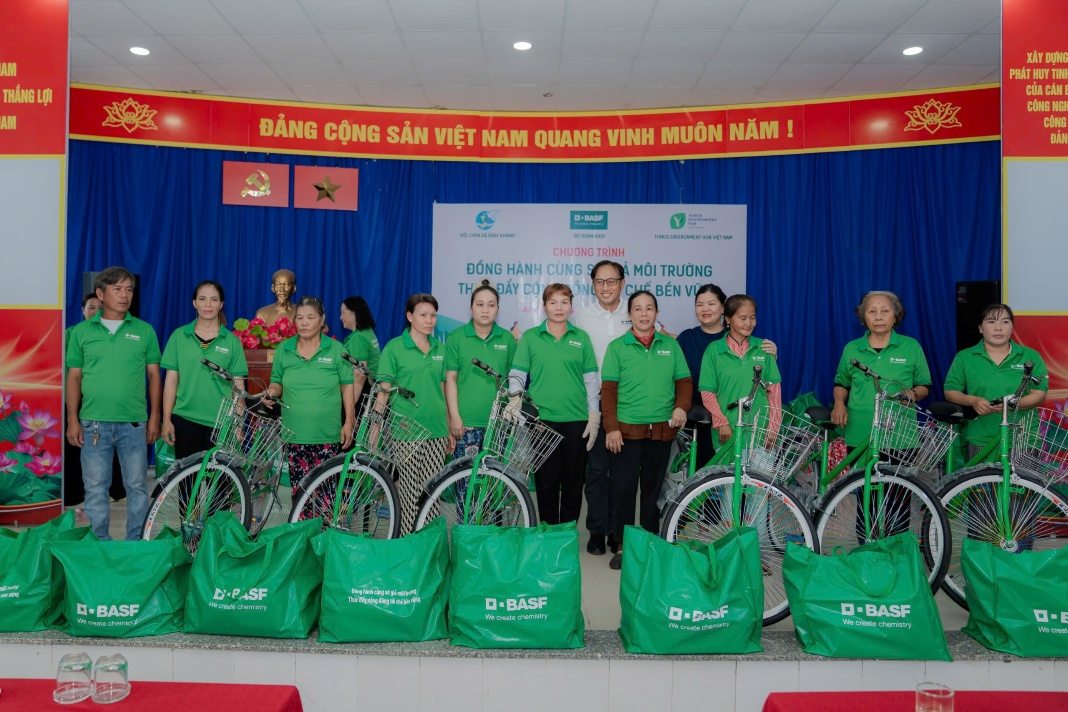HCMC – BASF Starting Ventures, Yunus Environment Hub Vietnam, and the Women’s Union of Binh Khanh Commune (formerly part of Can Gio District) have launched a workshop program to support informal waste workers with training and essential equipment, aiming to promote safety and sustainable livelihoods.
More than 100 waste collectors joined the first workshop titled “Occupational Safety & Sustainable Livelihoods: Knowledge and Skills for Informal Waste Workers.” The workshop equipped participants with practical knowledge on environmental protection, occupational health and safety, livelihood skills, and basic financial awareness relevant to their daily lives and work, while providing them with bicycles and personal protective equipment. The initiative aims to improve their work efficiency, ensure personal safety, and enhance income potential, while affirming their role as true “eco-guardians” within the community. A second session is planned for the end of 2025, targeting another 100 workers.

This workshop series is part of “Accompanying Eco-Guardians: Driving a Sustainable Recycling Community,” an initiative by BASF Starting Ventures under the BASF Group that aims to build the capacity of informal waste workers. The program seeks to improve working conditions, promote micro-entrepreneurship, and advance a circular economy by addressing plastic waste challenges.
“As a responsible corporate citizen active in the country for more than 30 years, BASF is committed to contributing to a more circular and sustainable economy in Vietnam,” said Erick Contreras, managing director of BASF Vietnam. “With this program, we aim to improve the lives of waste workers and underscore their crucial roles in advancing Ho Chi Minh City’s solid waste management plan through 2025, and the national commitment to reduce plastic waste by 2030.”
Phan Hanh Tam, director of Yunus Environment Hub Vietnam, said the collaboration aims to empower informal waste workers as micro-entrepreneurs. “Through our experience supporting MSMEs (Micro, Small and Medium-sized Enterprises) and driving social business solutions, we are committed to enabling these workers – especially women – with the skills, resources, and confidence to thrive along the waste value chain, building a brighter and more sustainable future for local communities,” Tam said.
Located about 50 kilometers from downtown HCMC, Binh Khanh Commune connects the city with the former Can Gio District area. The area faces rising plastic waste issues, mirroring a national trend. Vietnam produces an estimated 2.9–3.3 million tons of plastic waste each year, yet only 27–33% is recycled. Most collection and sorting are handled by informal workers—mainly women aged 40 to 60—who often work in unsafe conditions with low income and limited access to social protection.









